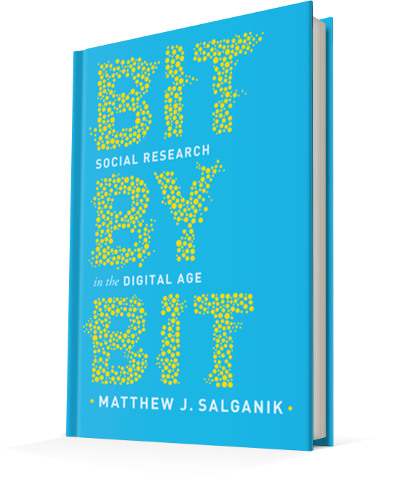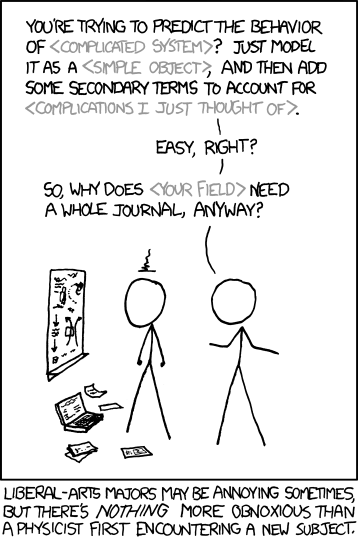Day Three, part B
Be careful out there folks!
Jon Atwell & Christopher Skovron
Northwestern University
June 21, 2018
Get giddy about the possibilities!
count_problems \(=G(\) data_size\(^\alpha), \alpha > 1\)?
Probably not, just different problems
- Pitfalls of Inference
- Ethical/legal considerations
- Practical considerations
Salganik’s Characterists of Big Data

(PUP, 2018)
Characterists BD can have
- Huge N
- Not created for science*
- Always-on
- Nonreactive
- Incomplete
- Inaccessible
- Nonrepresentive
- Drifting
- Algorithmically-confounded
- Dirty
- Sensitive
Big Data is indeed big, but is correlation is enough?
- whole of sample frame is not the population, unless science of X
- systemic bias instead sampling bias
- P-hacking, meet N-hacking: 6:06 mark
- More about new types of data, or richness of context
Not created for science
- “digital exhaust”
- weak link between construct and measures
Always-on
- Old: HS diploma to job at 28
- New: Location every 15 minutes.
- But: When is this informative? Are we answering different questions?
Nonreactive
- Old: Generosity in lab studies (reactivity/Hawthorne effect)
- New: Don’t know about observation, or is now normalized
- But: Have you been on Instagram?
Incomplete: If only I had:
Incessible
- Private companies own it
- Governments collect it but don’t share
Nonrepresentative
- Who actually tweets anyway?
- But nonrandom sample can still be very useful!
Drifting
- population
- behavior
- system
Algorithmically confounded
- unique experiences (N treatment groups)
- recommenders
- Matthew effect/increasing returns/preferential attachment
- action triggers
Bigger question: Is social life now algorithmically confounded?
Lack of treatment controls is one thing, butexposures compound to substantial change.
- those confounds create new reality
- Facebook vote encouragement
- LinkedIn recommendations
Dirty
- Wait, Russians can use Twitter too?!
- Wait, computers can do automated tasks?!
Sensitive
- More so than you might think: Meta data
- Merging or cross referencing data sets, especially so
Ethical and legal considerations
Ethical
- Loss of Privacy (See Netflix Prize)
- Violation of trust (See Cambridge Analytica)
- Exploitation
- Lack of informed consent
Legal Pitfalls
- Violation of User Agreements (Sandvig vs Sessions)
- Impersonation
- Deception
Legal hangups
- Formal data use agreements can happen without scientific input.
- Can take a long time
- Can be expensive
Paging IRB!
- behind the times, don’t understand tech systems
- assumes you’ll follow UA?
Practical considerations
You might have to read more widely
- physicists doing S.S. in Science and PNAS, etc.

You have to move quickly
- Small tweaks to websites can break scripts
- Data are more widely available, more people study them
But you might have to move slowly too
- harvesting data can take time
- stay off server blacklists
It’s important to start with observation
Platforms support actions that:- go unused
- get co-opted
It’s important to start with observation
Platforms can have unique:- norms
- terms
- meanings for words
- …?
Scraping just ain’t what it used to be
- Most webpages are dynamic and idiosyncratic
- Server-side ops/parameters are intentionally opaque
You can ask for data from corporations and other orgs
- think of quid pro quo
- Use LinkedIn to find lower level people who might care
- use email finders or domain hack address
- repeat
You can use Mturk (or its mirrors)!
- cheaply label training set
- cheaply validate results
- but I’m skeptical of survey results
Social science is moving toward lab or collaborative model